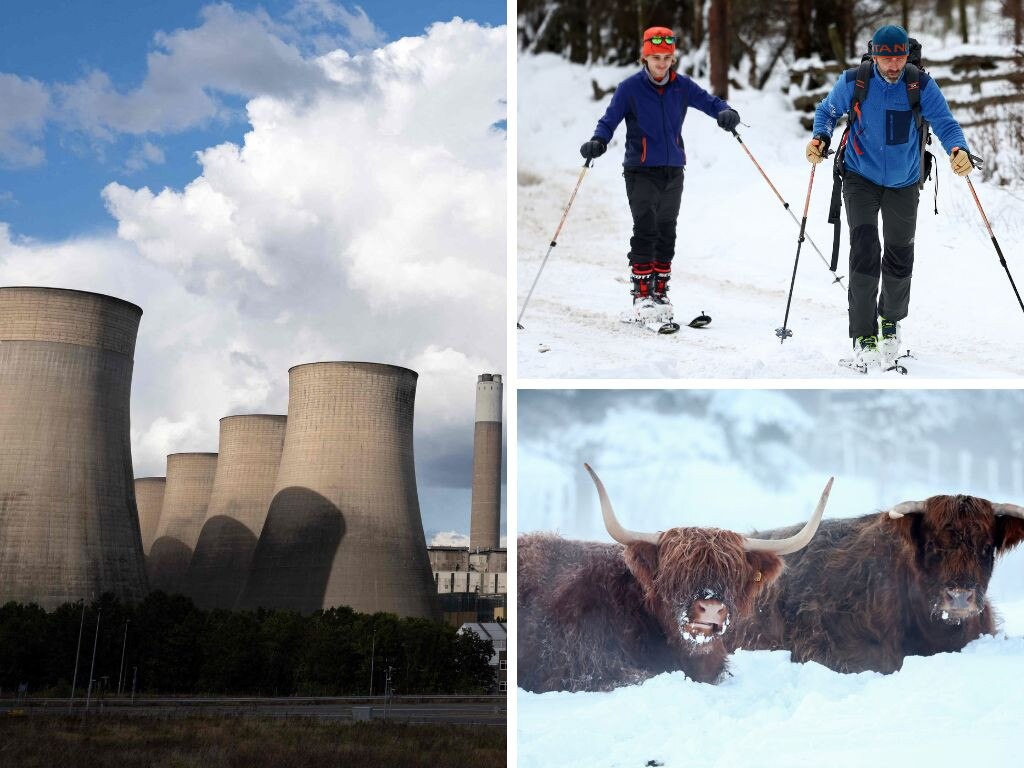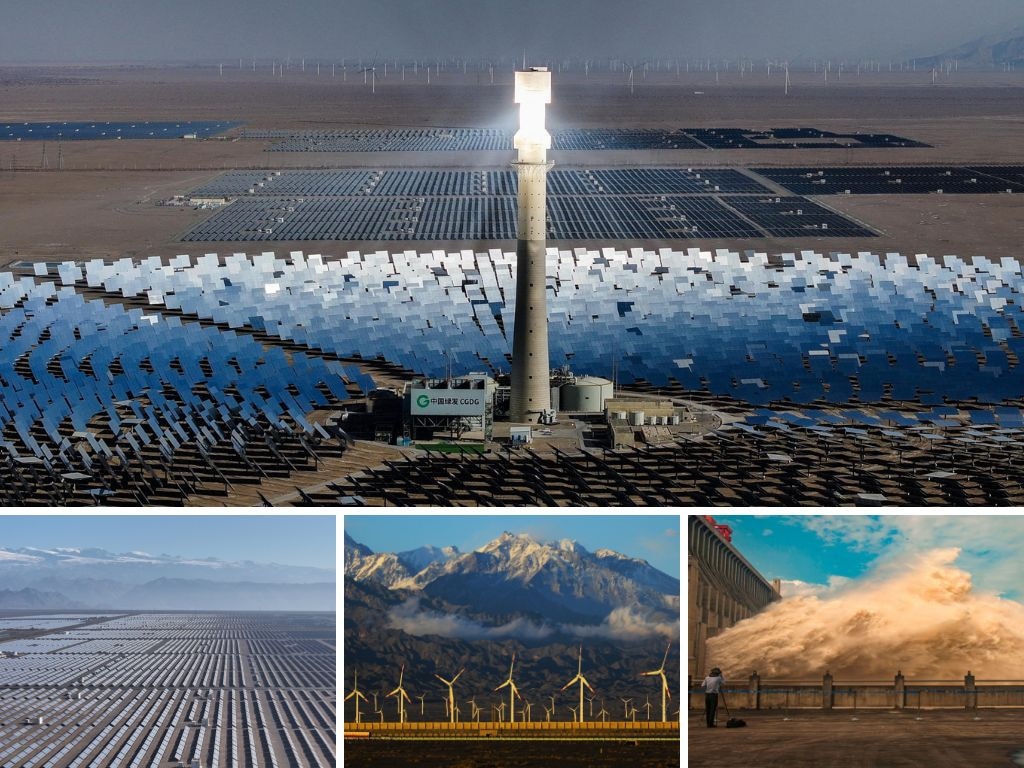Madeleine King warns voters will go off green power if lifestyles change, amid new green aluminium plan
Resources Minister Madeleine King warns support for Labor’s renewable transition will evaporate if voters lose their lifestyles, as Anthony Albanese prepares to reveal a plan to get aluminium smelters switched to renewables by 2036.
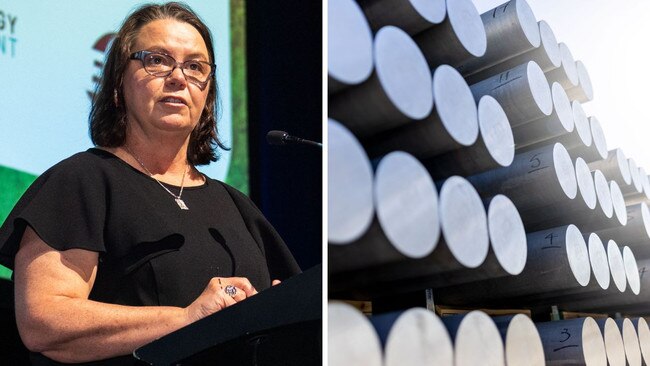
Business
Don't miss out on the headlines from Business. Followed categories will be added to My News.
Resources Minister Madeleine King warns the nation’s support for Labor’s renewable energy transition will evaporate if voters lose their lifestyles, as Anthony Albanese unveils a $2bn plan to switch Australia’s aluminium smelters to green power within the next decade.
As the Prime Minister faces a two-front election war on energy prices and lowering carbon emissions, Ms King says the “truth of it” is gas is essential to achieve net zero and that more supply projects – including a stalled $3.6bn Santos gas project at Narrabri in NSW – will go ahead to the benefit of the economy and the environment.
The minister’s warning that support for green power will “wither” if people’s livelihoods are affected comes possibly weeks out from an election that will be decided by voters who have faced years of rising power bills and concerns in the community – especially in the regions – about the pace and size of the energy transition.
“You quickly lose support for an energy transition if people can’t maintain their lifestyle,” Ms King told The Australian.
“If you can’t have what you want as an ordinary citizen, support for the transition (to renewable energy) will wither.
“The transition to net zero can’t be done without gas, that is the truth of it.”
Setting the government on an election footing before parliament’s likely return next week, Mr Albanese revealed on Monday he will use his Future Made in Australia agenda to bring a new Green Aluminium Production Credit to help smelters switch to renewables by 2036.
Businesses will be eligible for green energy credits for every tonne of clean and Australian-made aluminium they produce over the next 10 years.
The Prime Minister will visit the Hunter Valley’s Tomago Aluminium smelter on Monday and use the new credit to highlight his pre-election claim that a green energy future is a more reliable option for manufacturers than Peter Dutton’s vision of introducing nuclear power to Australia.
“Investing in the Australian-made aluminium industry is a massive opportunity to create well-paid jobs in our regions and suburbs, and set Australia up for the future,” Mr Albanese said.
“We’ve got the resources, the workers, and the know-how, the only thing we don’t have is time to waste. We are building Australia’s future, not taking Australia backwards.”
Rio Tinto Australian chief executive Kellie Parker led industry backing for the new policy and said the Prime Minister’s plan would future-proof heavy industry in Australia and help the global drive towards clean energy.
“As global industrial customers and consumers increasingly focus on low-carbon products, this support signals Australia’s potential to be a major supplier of the aluminium needed for the global energy transition, creating a foundation for local businesses and manufacturing to thrive,” she said.
Manufacturers such as Tomago Aluminium have been at the forefront of the shift away from fossil fuels, especially gas.
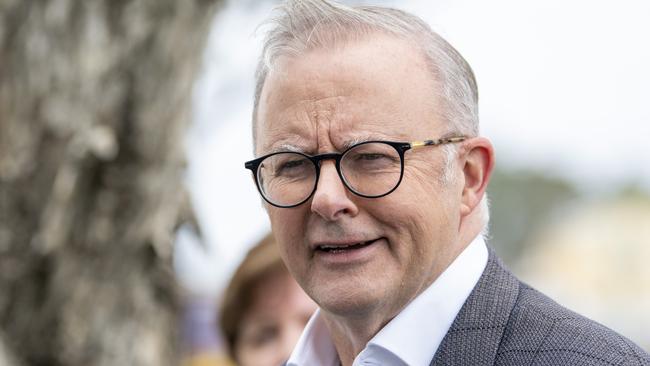
The Resources Minister – who will likely play a substantial role in Labor’s re-election campaign as the only member of cabinet from the battleground state of Western Australia – insists the cabinet is behind her belief in keeping gas as an essential part of the energy mix, despite years of intra-party warring over the fossil fuel’s future.
Victoria’s Labor government is scrambling to shore up gas supplies and the Australian Competition & Consumer Commission has recently conceded that eastern states will soon be reliant on LNG imports.
The Narrabri gas project is one of the biggest pieces of gas infrastructure still waiting to come to fruition, as Santos prepares for a Native Title Tribunal decision due by March 31 that could clear the way for NSW to issue a production licence.
Previous clearance from the Native Title Tribunal was overturned on appeal when the Federal Court found it should have considered climate change and not just accepted that the NSW Independent Planning Commission had already dealt with that issue
But Ms King said she thought Narrabri would go ahead, despite opposition that included green groups, some in the farming community and members of the Indigenous community.
“I think Narrabri will get up (but) it’s going to take some time and it has to go through the processes,” she said.
“Narrabri is located close to where gas is consumed. This means that gas from Narrabri does not need to be transported far, leading to cheaper prices for domestic customers. Projects like Narrabri – once they clear necessary state and federal approvals processes – will help to relieve pressure on domestic gas supply towards the end of the decade.”
Narrabri has the potential to meet almost half of the NSW gas demand in line with a commitment from Santos that 100 per cent of supply will go to the domestic market.
Gas from appraisal wells currently supplies about 32,000 homes via the Wilga Park power station, but there is potential for Narrabri to produce 150 terajoules a day in powering NSW.
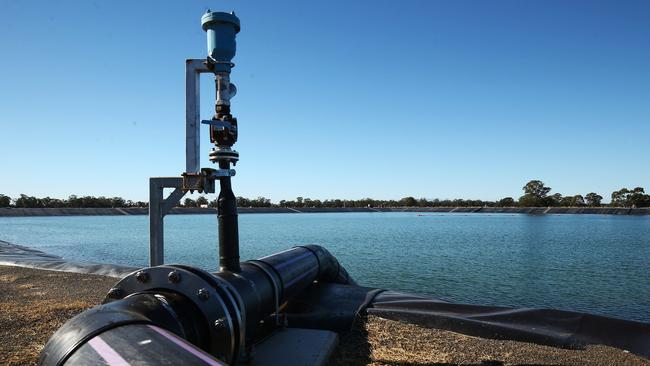
Ms King welcomed the Victorian government’s recent commitment to fast-track approvals for new gas supply, a move hailed by industry leaders as long overdue but potentially too late to avoid looming shortages.
“Victoria is making sure they can open up a few more sources and that’s just good for Victorian industry, and it’s good for Victoria’s renewables push to have gas as that firming fuel,” she said.
“As the Premier (Jacinta Allan) there knows, you need to be able to see people through that transition so that their power is backed up and they can have a choice and there is gas available to them.”
Ms King will not shy away from advocating for growth in LNG exports in the countdown to the election.
“Gas is part of the plans of other nations that are much higher emitters than our country and we should be proud to help them reduce their emissions,” she said.
Japan’s biggest LNG importers are among those counting on new supply from Woodside’s $16.6bn Scarborough project off the Western Australian coast, set to deliver gas in 2026 after facing legal challenges and protests.
Ms King said the perception in some quarters that she was an outlier struggling to advocate for the oil and gas industry within the Albanese cabinet was wrong.
Her supporters point to the government’s Future Gas Strategy as evidence of how she has influenced policy compared to Labor’s rhetoric on renewables when it first came to power.
Under the strategy condemned by green groups, gas will remain central to Australia’s domestic energy needs and a vital export industry to 2050 and beyond. The strategy spelled out that new gas fields must be opened up to meet demand during the energy transition, and supported growth in LNG exports.
“I’m not a lone voice (for oil and gas). People might perceive that. I’m the Resources Minister so you’d expect that I would be the strongest voice,” Ms King said.
“The Future Gas Strategy was well supported within cabinet and the government. It might be controversial for others, but not for the government.”
More Coverage
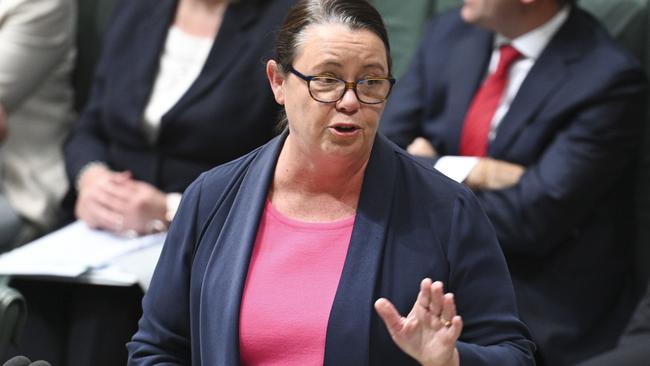
Originally published as Madeleine King warns voters will go off green power if lifestyles change, amid new green aluminium plan


